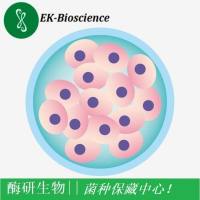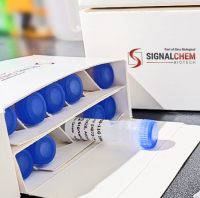Use of Inhibitors in the Study of MAP Kinases
互联网
555
The mitogen-activated protein (MAP) kinases are ubiquitous intracellular signaling proteins that respond to a variety of extracellular signals and regulate most cellular functions including proliferation, apoptosis, migration, differentiation, and secretion. The four major MAP kinase family members, which include the ERK1/2, JNK, p38, and ERK5 proteins, coordinate cellular responses by phosphorylating and regulating the activity of dozens of substrate proteins involved in transcription, translation, and changes in cellular architecture. Uncontrolled activation of the MAP kinases has been implicated in the initiation and progression of a variety of cancers and inflammatory disorders. As such, the ability to manipulate the activity of MAP kinase proteins with specific pharmacological inhibitors has received much attention as research tools for understanding basic mechanisms of cellular functions and for clinical tools to treat diseases. A variety of pharmacological inhibitors have been developed to selectively block MAP kinases directly or indirectly through targeting upstream regulators. This chapter will provide an overview of some of the current inhibitors that target MAP kinase signaling pathways and provide methodology on how to use selective MAP kinase inhibitors and immunoblotting techniques to monitor and quantify phosphorylation of MAP kinase substrates.









